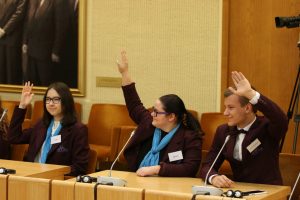What Institutions Participated in the Project?
- Martynas Mažvydas National Library of Lithuania
- Antanas Smetona Gymnasium in Ukmergė
- Vladas Šlaitas Public Library of Ukmergė District Municipality
- Global Lithuanian Leaders | GLL
- Vytautas Magnus University Lithuanian Emigration Institute
- Parliament of the Republic of Lithuania
The project was partly funded by Lithuanian Council for Culture

Why This Topic? Why High School Students?
During the last 25 years since Lithuania’s independence, one-third of its population has emigrated. Every second Lithuanian emigrant is 20-29 years old. Also, Lithuania has a long and complicated history of (e)migration, which includes several waves: economic emigration in the late 19th and early 20th centuries, political emigration at the end of WWII and contemporary wave of emigration, which coincided with Lithuania’s regained independence.
A great number of Lithuanian (e)migrants were very important in country’s history, for example, Valdas Adamkus returned to his homeland from Chicago to become the President of Lithuania. However, the analysis conducted by the National Library of Lithuania researchers has shown that high school curriculum pays little or no attention to historical and current social processes of (e)migration and portrays it negatively.
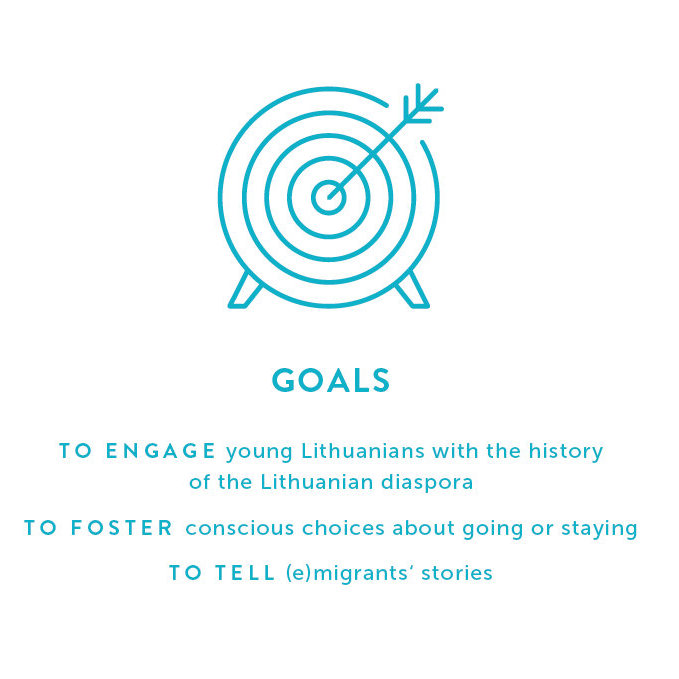
What Role Did Libraries Play in the Project?
One of Martynas Mažvydas National Library of Lithuania functions is to serve as a state repository of documents related to Lithuania or Lithuanians but published abroad. This means that the National Library of Lithuania collects and preserves books, journals, newspapers and other kinds of publications, published by or related to Lithuanian diaspora around the world.
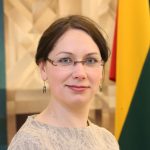
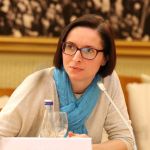
The Project was carried out by two National Library of Lithuania’s experts in history and (e)migration. A historian dr. Giedrė Milerytė-Japertienė is the author of a monograph “Lithuanian and Polish Relations in Exile, 1945-1990” (2014). Dr. Dalia Cidzikaitė is a representative of the Lithuanian American Community, Inc. in Lithuania. While in the US, for six years she worked as the editor-in-chief of Lithuanian-American newspaper “Draugas.” She also co-authored a book “We Thought We’ll Return Soon”, which tells 18 unique stories of Lithuanians being forced to flee their homeland during WWII.
Vladas Šlaitas Public Library of Ukmergė District Municipality also took place in the Project. It collects and preserves local heritage, including oral history. Audio files and transcribed texts from the Project “Conversations about Emigration” will be deposited in its collections soon. One of the Project’s events, a discussion led by “Global Lithuanian Leaders”, took place on the premises of Vladas Šlaitas Public Library. Moreover, the library bears the name of a Lithuanian poet Vladas Šlaitas, an emigrant from Ukmergė region, who spent most of his life living outside Lithuania.
What Were Project’s Activities?
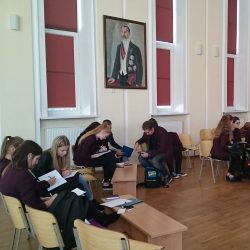
The Project was launched in early autumn of 2015, with two lectures on the history of Lithuanian (e)migration and the oral history workshop, meant to prepare students to interview people who emigrated from Ukmergė. Both lectures and the workshop were given by the National Library of Lithuania researchers, dr. Dalia Cidzikaitė and dr. Giedrė Milerytė-Japertienė. Later in the Project, the researchers consulted students in their search of interviewees and conducting interviews. Vytautas Magnus University Lithuanian Emigration Institute agreed to analyze data collected by students and publish results in a Lithuanian diaspora and migration studies journal, “Oikos.”
To get better acquainted with the history of Lithuanian (e)migration, students travelled to Vilnius, where they visited the National Library of Lithuania and Vytautas Kasiulis Art Museum, which exhibits works by the acclaimed Lithuanian émigré artist of the same name.
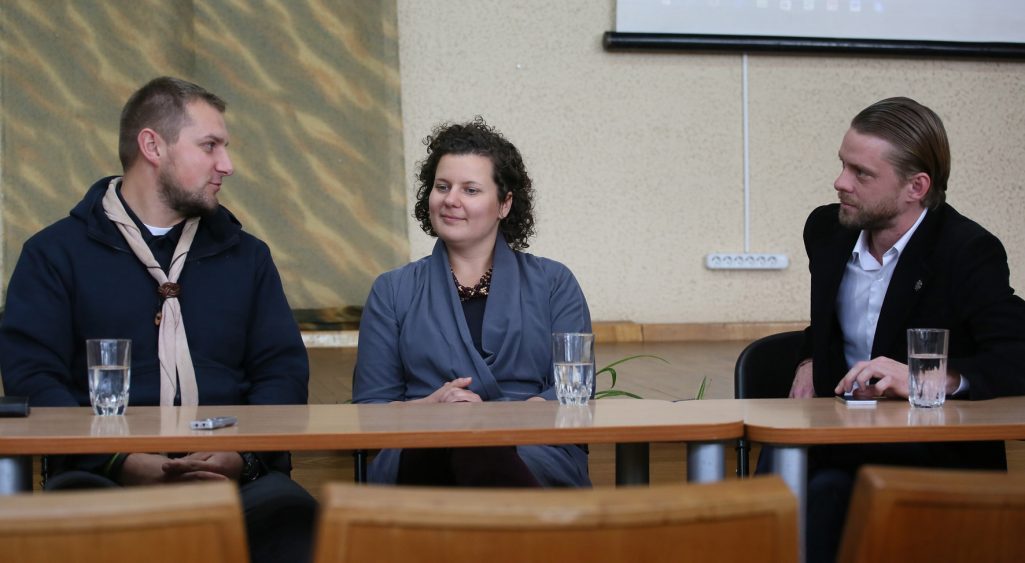
In their hometown, students attended a discussion led by “Global Lithuanian Leaders” about current migration process. Here they heard the success stories of young and socially active Lithuanian (e)migrants, who after gaining useful experience abroad decided to return to Lithuania.
The project ended in December with a debate in Parliament of the Republic of Lithuania. Students were asked to take sides on (e)migration and defend their opinion about its positive and negative aspects. The Speaker of the Parliament, Loreta Graužinienė, who is from Ukmergė herself, found time in her busy schedule to participate at the event and show students around.
What Did Students Have to Say about the Project?
After the project, students who participated in the Project were asked to fill out an anonymous questionnaire. The general evaluation was very positive; on the scale of 1-10, it ranged from 8 to 10. High school students were also asked to answer a question whether they would recommend this Project to their friends. Here are some answers:
I would recommend this project because it helped me to understand the stories of emigrants, to know better their lives and improve my skills in journalism.
I recommend it because we can gain more knowledge about emigration, learned about its pros and cons. I had learned about real-life experiences and what it means to live in another country.
I truly liked this project. I had learned more about emigration itself, about its waves and stages. During the visit [to the National Library] we were able to see the books being restored, how many of them are being published by Lithuanians, who currently live or lived abroad.
I liked participating in the project because I learned a lot. I learned a lot and even visited the Parliament!
Way to go!!! It’s so fun to learn something new and to be part of the project. Besides, people talk about emigration a lot these days, thus it was interesting to learn true facts about it. I’m a curious type; therefore I’d participate in similar projects in the future. … As for me personally, everything was organized great and it was very interesting.
What Next?
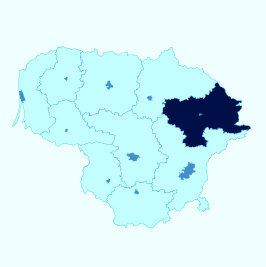 After the success of the pilot project, the second project “Conversations about Emigration 2” is moving to Utena County, located in the northeastern part of Lithuania. The project will be carried out in 5 local high schools at the same time in collaboration with local public libraries, Antanas Smetona Gymnasium in Ukmergė (the school, where the pilot project took place), “Global Lithuanian Leaders”, Vytautas Magnus University Lithuanian Emigration Institute, and LRT Lituanica, a Lithuanian public TV channel, which programs are tailored for Lithuanian audience abroad.
After the success of the pilot project, the second project “Conversations about Emigration 2” is moving to Utena County, located in the northeastern part of Lithuania. The project will be carried out in 5 local high schools at the same time in collaboration with local public libraries, Antanas Smetona Gymnasium in Ukmergė (the school, where the pilot project took place), “Global Lithuanian Leaders”, Vytautas Magnus University Lithuanian Emigration Institute, and LRT Lituanica, a Lithuanian public TV channel, which programs are tailored for Lithuanian audience abroad.
The first project showed that students were more efficient at learning when completing interactive and creative tasks and working on their own. Therefore the second project “Conversations about Emigration 2” will be oriented towards individual and group activities, which require the most creativity. New Project team has big plans and is looking forward to their realization!
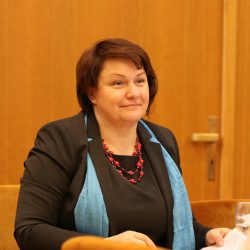 For further information please contact the coordinator of the Project, Jolanta Budriūnienė.
For further information please contact the coordinator of the Project, Jolanta Budriūnienė.


